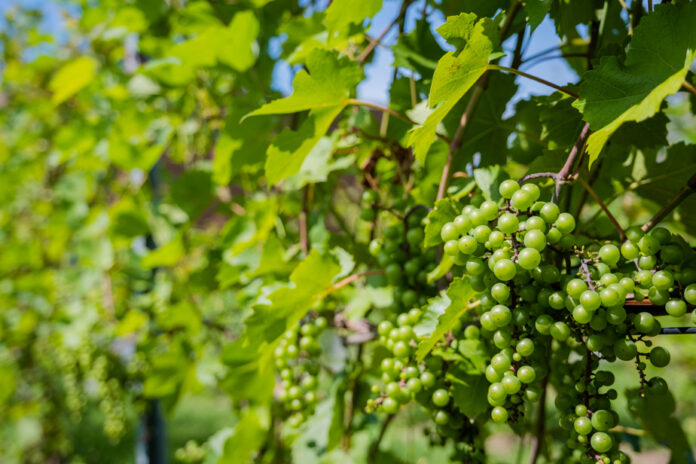The abundant rain that fell in the Quebec fields obviously did not spare the vineyards. And, as is known, grapes are particularly sensitive to moisture, fungal diseases are often fatal to them.
“It’s extreme sport,” admits Sébastien Daoust, owner of Les Bacchantes vineyard, located in Hemmingford.
Unlike the market gardeners whose miseries due to the weather have made the headlines in recent days, the winegrowers are not in the harvest period. There are several weeks left before the start of the harvest. We cannot, at this stage, assume a drop in yield, says Sébastien Daoust. On the other hand, we can certainly speak of a significant increase in interventions in the fields.
An opinion shared by his fellow winegrowers who must take more care of the plants if they want to bring them to harvest and, ultimately, to the bottle.
Because a heavy rain will wash the vine of the product that is applied to protect it… from diseases caused by too much humidity!
In the case of his organic vineyard, Sébastien Daoust indicates that it takes a long day to spray. So it’s more labor, more products, more tractor fuel…
Significant additional costs for an SME, as are the majority of vineyards here.
But the effort is essential if the winegrowers want a good harvest, because they have no insurance in the event of losses. At the end of the season, companies will have to assess the excess costs caused by these additional interventions and adjust the business plan.
Not very far from there, in Saint-Bernard-de-Lacolle, Frédéric Tremblay, from the Camy vineyard, carried out an exceptional treatment on his vines, precisely because the weather dictated it and he did not want to make too many passages with the machinery or gorge its soils with copper, to combat the disease.
“It’s a bit like when you give antibiotics to a sick child,” he says to explain his interventions.
Frédéric Tremblay is a meticulous observer of the weather. Camy will be in its seventh season of production, and certainly one of the wettest. With last year.
Which means more time to do “good agricultural practices”, confirms the winemaker.
For example, removing leaves to give more sun to the grapes. It’s simple, effective, but it takes time.
“We try to put the fruit in the driest environment possible,” he says. We must also weed more, because it grows constantly.
And, yes, fight disease.
“In the vineyards, there are three fungal diseases that bother us,” says vineyard owner Camy. At home, this year, it is mainly mildew that is a problem and it is directly linked to the large amount of rain on the leaves.
After a very average harvest in 2022, across the entire Quebec vineyard, can we expect yields affected by the 2023 rain?
Two months before the harvest, no winemaker will comment on the current season.
But all are of the opinion that more than one challenge remains.
Next fight for Frédéric Tremblay: botrytis, this fungal disease that causes fruit to rot and can therefore affect yields. Last year, the September rain wiped out 15% to 20% of the Chardonnay at Camy, and more in other varieties.
However, a beautiful sunny end to summer could change the situation and end the 2023 season in style.
This is what Benoit Giroussens, from Coteau Rougemont, is betting on. The great advantage of this Montérégie company, like some other Quebec vineyards, is that the soils are sandy. So they drain well. And the vineyard is on the mountainside, so there is no accumulation of water.
“It’s still complicated this year,” he admits nevertheless, because he too spends a lot of time making sure the vines are well pruned, leafless, etc.
This does not prevent hail or frost episodes: in the spring, the Coteau Rougemont suffered a 20% loss due to frost.
The excellent news for lovers of Quebec wines is that, regardless of the yields, the fruits are beautiful.
If it rained a lot, it was also sunny, nuance Benoit Giroussens.
“We had almost as many degree days as in 2021,” explains the cellar master. This is how sunshine is calculated in vineyards. And 2021 had been a superb vintage in Quebec. Which will therefore give grapes bursting with sugar and flavor.
“The grapes that are there are magnificent,” says Benoit Giroussens.















